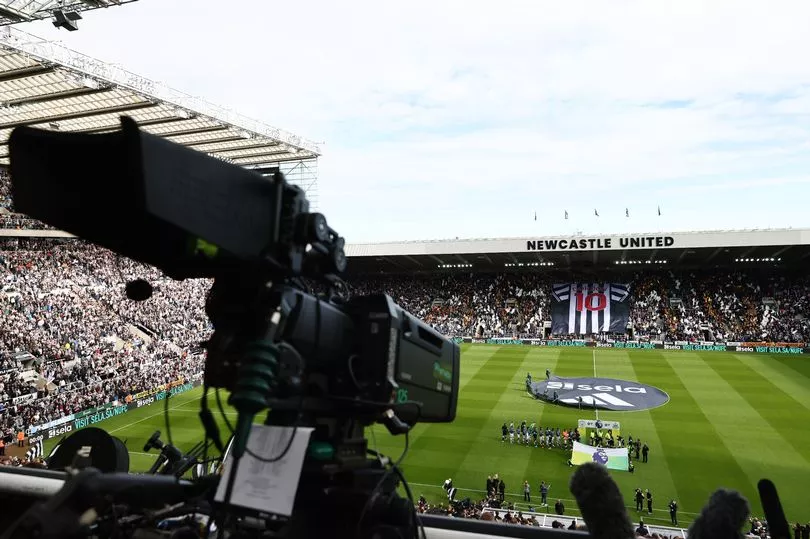Newcastle United secured £154.7m in television revenue last season as part of the Premier League’s annual revenue distribution.
The league’s report detailed the earnings of each club for the 2023-24 season, with Newcastle’s total largely composed of equal shares from UK broadcasters (£31.2m) and international rights (£55.7m), along with a central commercial payment of £8.2m.
Every club in the league received these base amounts, ensuring a level of guaranteed income. However, additional earnings were determined by merit payments, reflecting the club’s final league position, and facility fees, which depended on how frequently a team’s matches were broadcast live in the UK.
Newcastle, having finished seventh and featured in 23 televised matches, earned a substantial sum. However, the club fell behind Manchester United, Spurs, Chelsea, Aston Villa, Liverpool, Arsenal, and Manchester City in total revenue.
Compared to the previous season, Newcastle’s earnings dropped by £10m due to a higher league finish and more televised matches in 2022-23. This financial shift highlights the competitive nature of the Premier League’s revenue distribution, where every position in the table and each televised game significantly impact a club’s earnings.

The club’s financial picture becomes even clearer when considering its wage bill from a couple of seasons ago, which stood at £186.7m. That figure already exceeded the television revenue received last season, and given the expected rise in salary expenditures, the gap has likely widened.
With Newcastle’s 2023-24 financial accounts soon to be released, they will offer further insights into the club’s delicate Profit and Sustainability Rules (PSR) situation. The financial constraints have played a major role in Newcastle’s transfer strategy, leading to back-to-back transfer windows where the club prioritized maintaining a net profit.
The Premier League’s revenue distribution also sheds light on the anchoring system, a financial model currently being trialed. This framework would set a universal spending cap, allowing clubs to invest up to five times the amount received by the team finishing at the bottom of the league.
Sheffield United, who placed 20th last season, earned £109.7m, meaning the theoretical spending limit for all clubs would be £548.5m. While this structure could create a more balanced financial playing field, clubs would still have to adhere to squad cost regulations.
These rules restrict spending on wages, transfers, and agent fees to 80% of revenue for non-European clubs and 70% for those participating in UEFA competitions.
For Newcastle, these regulations align closely with UEFA’s existing financial controls, which limit spending to 70% of revenue starting next season. Anchoring could introduce a standardized cap, preventing clubs with significant commercial income from outspending competitors by an extreme margin.
However, the Professional Footballers’ Association (PFA) has voiced opposition to any attempt by the Premier League to implement a hard salary cap. The PFA has even threatened legal action, arguing that such measures could unfairly restrict player earnings and destabilize wage structures across the league.
Newcastle’s financial strategy must now navigate the complexities of PSR compliance, potential salary cap regulations, and evolving revenue models. While the club’s earnings from television rights remain strong, balancing spending with sustainable growth will be critical.
With increasing scrutiny on financial regulations and the possibility of new spending limits, Newcastle must remain agile, ensuring compliance while maintaining competitiveness at the highest level.
